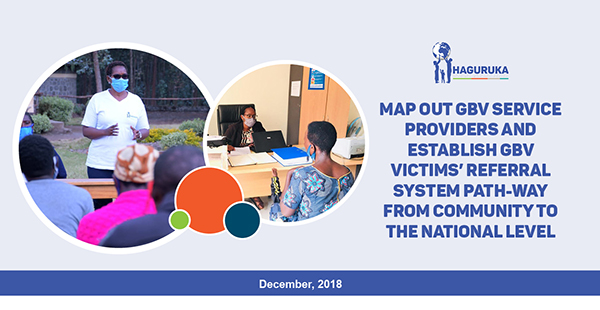
An Analysis of Haguruka’s Legal Aid 2017-2021
This report analyzes Haguruka’s legal aid services from 2017 through 2021 which overlaps with Haguruka’s 25th through 30th years of service. Over the course of five years, Haguruka assisted in 10,207 documented legal aid cases. This is the first systematic analysis of Haguruka’s impact over time, and to the author’s knowledge, the first systematic review of non-governmental legal aid over time in Rwanda at this scale.
Assessment of GBV shelter services in Rwanda
This assessment aimed to evaluate the quality, accessibility, and effectiveness of shelters for victims of Gender-Based Violence (GBV) in Rwanda. Recognizing the lack of standardized practices and potential gaps in service provision, the assessment sought to identify key challenges and opportunities for improvement within the shelter system. By engaging HAGURUKA and key stakeholders, the assessment aimed to provide actionable insights to inform resource mobilization, advocacy efforts, and the development of comprehensive policies and guidelines for GBV shelters in Rwanda.
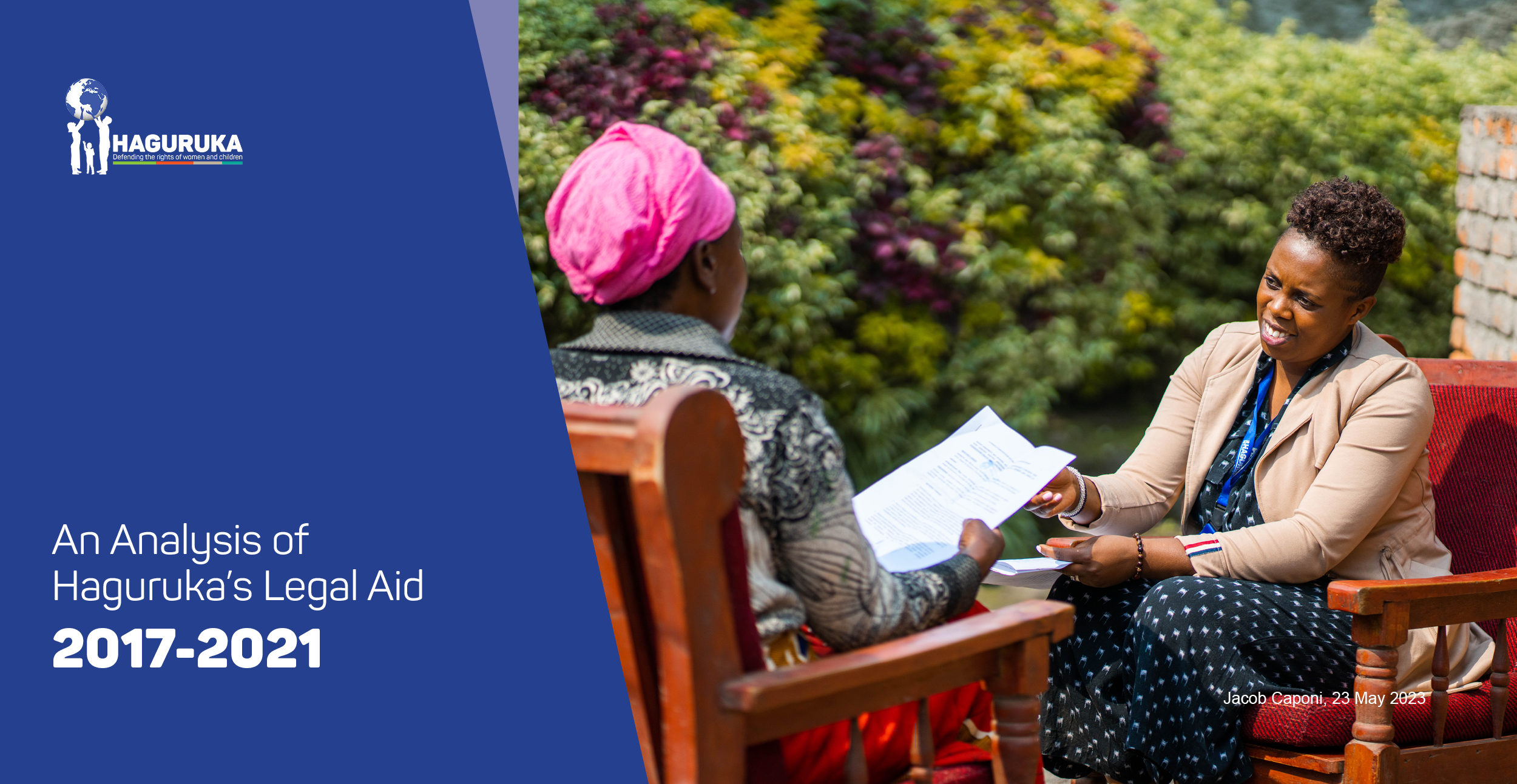
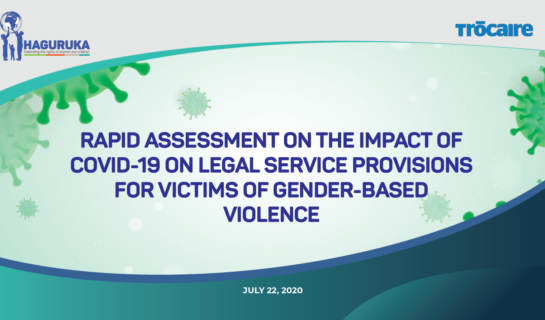
Impact of Covid 19 on Legal Service Provision to GBV Victims
This rapid assessment highlights emerging evidence on the impact of the COVID-19 pandemic on violence against women. It draws on a number of desk reviews, key informant interviews and group discussions to learn more about the impact of COVID-19 on their actual responses. The rapid report then reviews the strategies and approaches adopted by different stakeholders to continue providing legal aid services to their beneficiaries during the pandemic.
ADR Community Led Assessment
Alternative Dispute Resolution (ADR) consists of a variety of practices that provide alternative mechanisms to resolve disputes while avoiding a full-scale court procedure. Although ADR is developed from a Western context as an alternative to conventional justice, Rwandans recognize ADR as their own ordinary, historical and cultural approach for addressing conflict and harm. In line with this, Haguruka undertook this assessment of 10 districts to contribute to the body of knowledge on ADR in Rwanda through three key objectives:
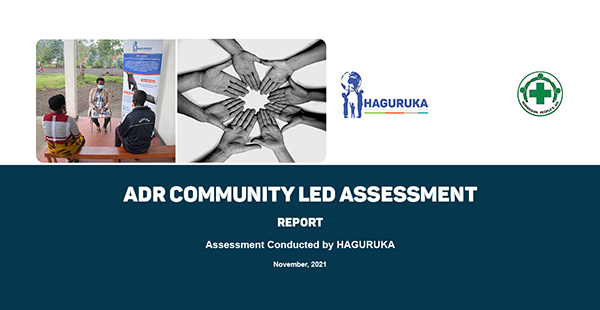

Effectiveness Gender Equality
Using both qualitative and quantitative methods, this report is an analysis of gender equality related laws, policies and initiatives of 10 purposely selected districts to 1) better understand the achievements and strategies deployed by different districts; 2) identify gaps where laws and policies fail to correct persistent gender inequalities and gender-based conflicts and violence.
Assessment Level of Women in GBS
To materialize the advancement of gender equality in Rwanda’s planning processes, the government introduced the Gender Responsive Budgeting (GRB) program that aims at ensuring government spending addresses the needs of women and men equitably. This study’s objective examined women’s participation in the district planning and gender budget statement (GBS) process. The study drew on eight districts as cases and utilized both qualitative and quantitative methods to address four aims related to GBS. Findings from the report point to multi-sector and multi-level recommendations.
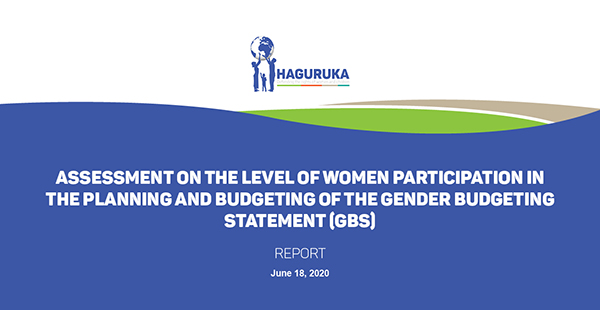
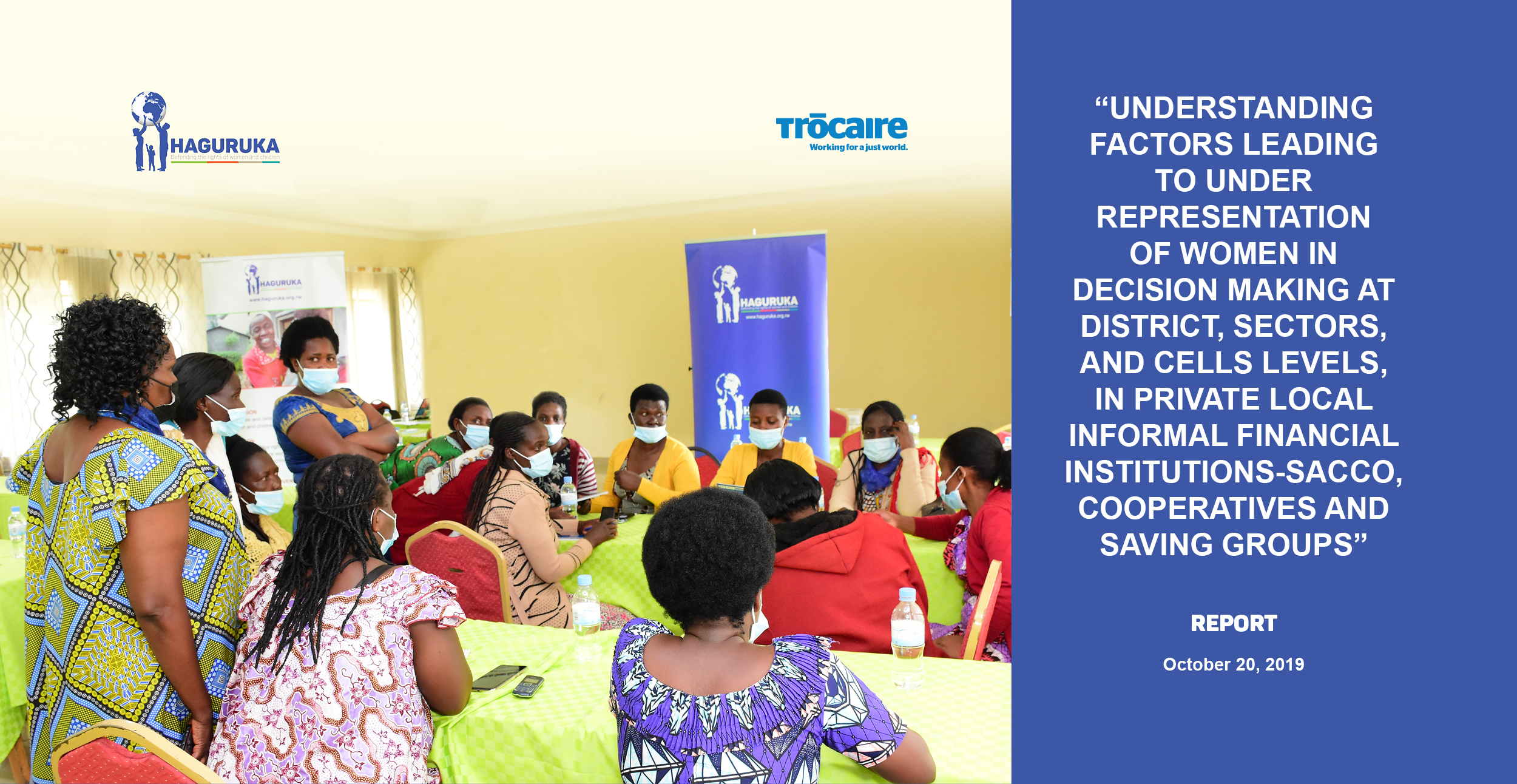
Factors leading to the Under representation of women in Decision-making
This report presents research and findings related to the objective to better understand the factors hindering women to access decision-making positions at local administrative entities. The targeted positions at local level are executive committee of the district (Major, both V/mayors), Executive Secretary of the district, Executive Secretary Sector, Cell and Coordinator of the village.
Assessment of Justice Chains
This report presents a preliminary assessment of Justice chains and attention routes dealing with GBV, their roles, as well as carry out a mapping exercise to define and strengthen service referral systems for GBV victims; as an integral process of improving the systematic provision of quality legal aid at District and Sector levels. This assignment reviewed the mapping of gender-based violence justice chains, processes, and attention routes in five Districts: Bugesera, Gasabo, Musanze, Nyamasheke and Nyaruguru.
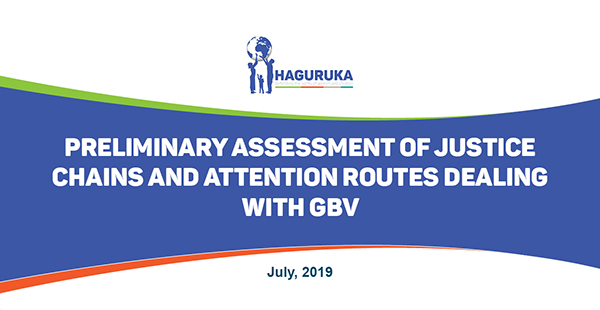
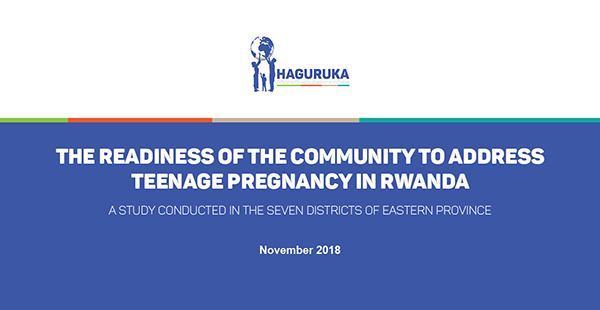
The Readiness to address Teenage Pregnancy
This report seeks to better understand how communities can respond constructively to teenage pregnancy as this phenomenon gains attention from national and international researchers. Five objectives are addressed through mixed method data collection conducted in seven districts. Findings reveal power imbalances with age, formal education, social integration, and disclosure of male partners are barriers for teenage mothers. Various recommendations are presented to address the findings.
Map out GBV service providers
Rwanda adopted a referral system which involves various entities addressing GBV, but GBV cases continue to increase even with many cases going unreported. This study aims to 1) map out the GBV service providers in respective operating regions, and 2) to find out whether the existing referral system is effectively addressing the needs of GBV victims. The report finds many organizations are addressing GBV cases but with overlapping responsibilities.
